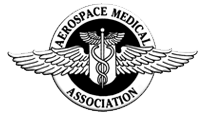Think Again By Mike Wayda
Pilots know that their vision is the most important sense they possess, and their safety depends on how well they see. The prospect of having refractive surgery done to improve their eyesight— without having to rely on glasses or contact lenses — is an attractive, appealing notion to many.
The advertisements that some practitioners use to attract potential patients make the procedures appear to be swift, painless, convenient, and effective. However, because of the notion that refractive surgery is a simple, fool-proof procedure, aviators might not appreciate what is at risk. When considering the advantages of refractive surgery to correct vision deficiencies, pilots should also consider the disadvantages before making a decision. They should consult an eyecare specialist to determine how a particular procedure would affect their vision, as well as their work and leisure activities.
One of the most popular and effective methods of vision correction designed to reduce dependency upon glasses or contact lenses is LASIK (laser-assisted in situ keratomileusis) surgery.
LASIK, as well as radial keratotomy and photorefractive keratectomy procedures, have potential adverse effects that could be incompatible with flying duties. These adverse effects include corneal scarring or opacities, worsening or variability of vision, night glare, and haziness of vision.
LASIK practitioners mention that between 95 and 99 percent of their patients are doing well and are pleased with the outcome of their refractive surgery. However, if that leaves a 1 to 5 percent group of patients whose outcome is unsatisfactory, then thousands of people, some of whom are pilots, are experiencing permanent vision impairment. For some, this could mean the end of flying as a career.
Some of the many important factors to consider prior to refractive surgery are contained in the following list that was condensed from a Food and Drug Administration article2. The FDA article fully discusses LASIK procedures and includes the major items to consider before deciding whether LASIK surgery is appropriate or not.
A Checklist for LASIK Surgery Candidates
• Career impact — does your job prohibit refractive surgery?
• Eye conditions — do you have or have you ever had any problems with your eyes other than needing glasses or contacts?
• Medications — do you take steroids or other drugs that might prevent healing?
• Stable refraction — has your prescription changed in the last year?
• High or low refractive error — do you use glasses/contacts only some of the time? Do you need an unusually strong prescription?
• Pupil size — are your pupils extra large in dim conditions?
• Corneal thickness — do you have thin corneas? (not everyone has sufficient corneal thickness)
Some Risks and Procedure Limitations
• Overtreatment or undertreatment — are you willing and able to have more than one surgery to get the desired result?
• After treatment, you may still need reading glasses — do you have presbyopia?
• Results may not be lasting — do you think this is the last correction you will ever need? Do you realize that long-term results are not known?
• You may permanently lose vision —some patients may lose some or all vision, experience blindness.
• Development of visual symptoms — glare, halos, starbursts, etc.; night driving might be difficult.
• Contrast sensitivity — vision could be significantly reduced in dim light conditions.
• Bilateral treatment — there are additional risks of having both eyes treated at the same time.
• Patient information — read the patient information booklet about the laser being used for your procedure.
Finding the Right Doctor
• Medical doctor — is your doctor a refractive surgeon?
• Professional care — will you be seen by the surgeon at all visits before and after surgery?
• Experienced — how many eyes has your doctor performed LASIK surgery on with the same laser?
• Equipment — does your doctor use an FDA-approved laser for the procedure you need?
• Informative — is your doctor willing to spend the time to answer all your questions?
• Long-term care — does your doctor encourage follow-up and management of you as a patient?
• Be comfortable — do you feel you know your doctor and are comfortable with an equal exchange of information?
FAA Aeromedical Certification Guidelines
The FAA expects that airmen will not resume piloting aircraft until their treating health care professional determines that their post-operative condition has stabilized, there are no significant adverse effects or complications, and the appropriate vision standards are met. When this determination is made, the airman should have the treating health care professional document this in the health care record, a copy of which should be forwarded as soon as possible to the Aeromedical Certification Division. If the health care professional’s determination is favorable, the airman may resume flight duties, unless informed otherwise by the FAA.
If the procedure was done between regularly scheduled FAA physical exams, the airman must provide a report to the FAA from the treating health care professional to document the date of surgery, any adverse effects or complications, and when the airman returned to flying duties. If the report is favorable and the airman meets the appropriate vision standards, the airman may resume flight duties, unless informed otherwise by the FAA.
If the procedure was done two years ago, or longer, the FAA may accept the aviation medical examiner’s eye evaluation.
A complete ophthalmologic evaluation (with a written report) is required to demonstrate stable visual acuity and lack of deleterious sequelae. The evaluation must include tests of visual acuity, field of vision, night glare, and haziness of vision. There should be no other pathology of the affected eye(s).
Preoperative, Operative, and Post-operative Expectations
• Do not wear contact lenses just prior to evaluation and surgery — can you go for an extended period of time without wearing contact lenses?
• Have a thorough exam — have you arranged not to drive or work after the exam?
• Read and understand the informed consent — has your doctor given you an informed consent form to take home, carefully read, and completely answer your questions?
• No makeup before surgery — can you go 24-36 hours without makeup prior to surgery?
• Arrange for transportation — can someone drive you home after surgery?
• Plan to take a few days to recover — can you take time off to recuperate for a couple of days if necessary?
• Expect not to see clearly for a few days — can you handle the problems associated with fuzzy vision?
• Know the sights, smells, sounds of surgery — has your doctor made you feel comfortable with the actual steps of the procedure?
• Be prepared to take drops/medications— are you willing and able to put drops in your eyes at regular intervals?
• Be prepared to wear an eye shield — you need to protect the eye for a period of time after surgery to avoid injury.
• Expect some pain/discomfort — do you know how much pain to expect?
• Know when to seek help — do you understand what problems could occur and when to seek medical intervention?
• Know when to expect your vision to stop changing — final results could take up to months.
• Make sure your refraction is stable before any further surgery — if you don’t get the desired result, do you know not to have an enhancement until the prescription stops changing?
1 Nakagawara, VB, Wood, K.J., and Montgomery, R.W. LASIK Refractive Surgery: Clinical Considerations for the Pilot. 1998. Oklahoma City, OK: Federal Aviation Administration.
2 For current information about LASIK, visit the FDA’s Website.
– The Federal Air Surgeon’s Medical Bulletin • Spring 2001 –



